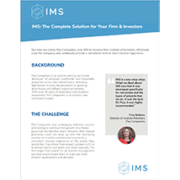The 7 Deadly Sins Could Lead to the Death of Some Investors
The seven deadly sins referred to in religious writings and Middle Age artworks are a grouping of vices believed to directly give birth to other immoralities. The church used the doctrine to deter evil and corrupt behavior. All but one of the sins can be categorized as a strong emotion that can lead to dangerous exploits. The genius of selling emotions (and not products and services) is used daily in sales for real estate, retail, financial and even politics. This is usually pretty clear in any ‘value prop’ proposed by a sales rep.
PRIDE – ENVY – WRATH – GREED – SLOTH – GLUTTONY – LUST
Many times the aforementioned vices have been applied to or converted into financial positions for portfolio investing and origination disciplines by pointing out that emotion may impair one’s ability to make prudent decisions. I imagine, in a twisted kind of way, there are people that are attracted to the emotions described in the sins. This is the only way I can explain what I define as ‘ego investing’.
[One example of the seven sins in finance was published on Entrepreneur.com not too long ago… https://www.entrepreneur.com/article/233411.]
Ego investing…
One day not long ago, I was waiting with a group of parents at my very fortunate son’s private school. I overheard two of the fathers talking about a private placement. They likely had no idea I have spent 20 years in finance, could analyze the investment in less than 30 seconds and assumed I would have no interest in the conversation. To me, the tone of the exchange was one that exuded pretense and privilege. But the part I found most disturbing was absence of even an iota of factual information or substantive data. This discussion typifies a growing problem that I believe could be limiting for issuers and potentially fatal for investors.
Increasing transparency, broadening the target investor base and creating standards by which alternative investments can be measured will be the new norm. Slow adapters may feel some pain as new investors have different demands on disclosure and reporting. Creating an environment of accountability and ethical behavior is beneficial to most. I suppose those who silently pride themselves on having access to the investors on the ‘inside’ may still be able to capitalize on their relationships, but hopefully, the lust of prestige will be replaced by the desire to be aligned with the best.












